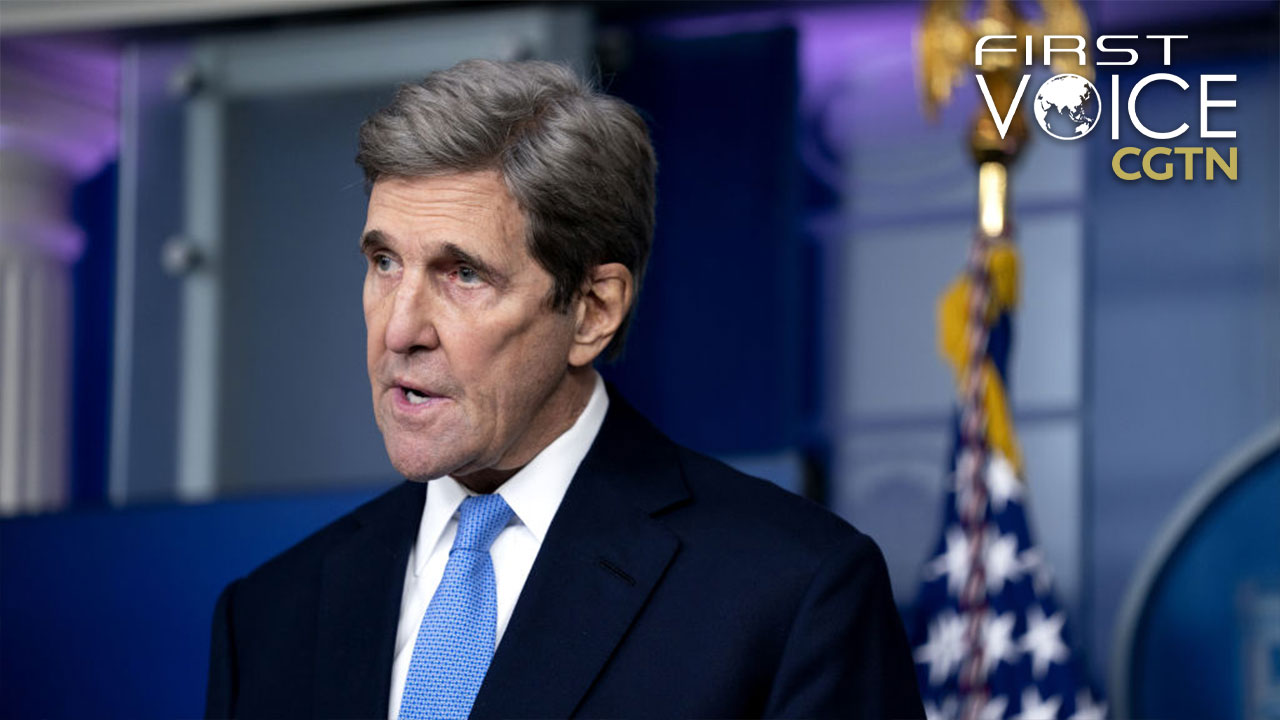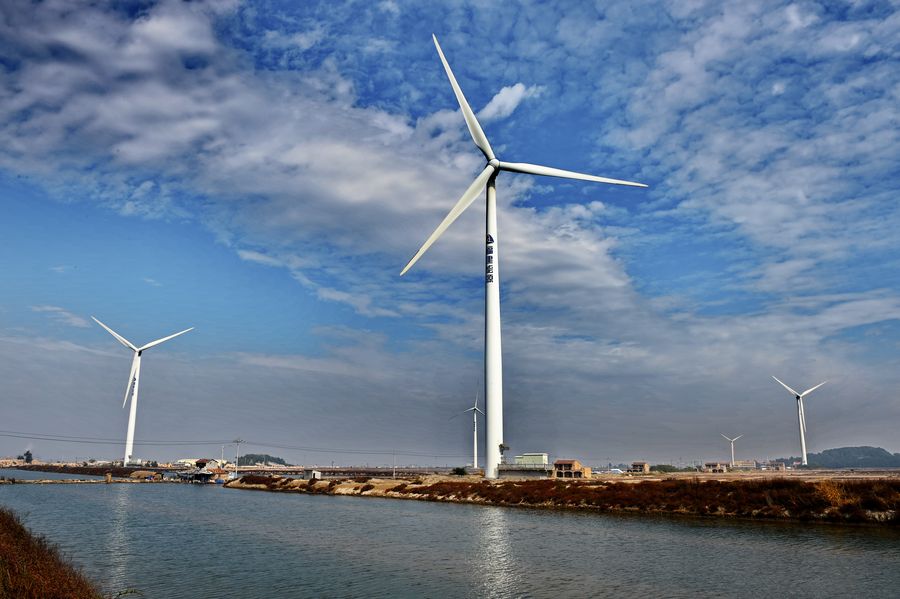
Editor's note: CGTN's First Voice provides instant commentary on breaking stories. The daily column clarifies emerging issues and better defines the news agenda, offering a Chinese perspective on the latest global events.
After days of discussion, U.S. Special Presidential Envoy for Climate John Kerry and his Chinese counterpart Xie Zhenhua reached a joint statement on climate change.
But it is worth noting that prior to his Shanghai trip, Kerry styled his visit in tough language vowing to "hold China to account." Kerry's team said it's committed to forcing China to reduce greenhouse gas emissions.
China is willing to cooperate with the West on climate. Irrespective of political differences and other disputes, climate change is a crucial issue affecting the future of all mankind. Amid Kerry's China visit, Chinese President Xi Jinping joined a climate summit with European leaders Angela Merkel and Emmanuel Macron respectively, forming a blitz of global climate cooperation.
This demonstrates China's sincerity in addressing global warming.
But a global problem requires, in turn, a global solution. This requires earnest multilateral and good faith cooperation. It should not involve singling out "blaming" or "shaming" any respective country especially when national contexts and priorities are different.
Although the Biden administration has talked about cooperation with China on climate change, the attitude by which it approaches the issue continues to be wrapped in the mantle of geopolitical competition. Beijing is not depicted as a necessary "partner," but something to be condemned, scapegoated, and treated with distrust and suspicion.
It's worth noting that just prior to Kerry's visit, Washington has took a slew of petty actions against Beijing: Top U.S. intelligence officials labelled China as an "unparalleled" threat; Democrats and Republicans aligned on tech spending to meet "China threat"; and the FBI chief said the agency opens a new espionage investigation into China "every 10 hours."
Clearly, Washington was attempting to use "China threat" as leverage to force Beijing's concessions in negotiations. It fails to understand that cooperation on climate change does not involve purely making demands.
Kerry's visit is a chance for candid collaborations between China and the United States. While China is sincere in tackling global warming, the U.S. was instead trying to play the politics of climate change to discredit China and using it as a means to deliberately attack or constrain China's development needs.

Wind power generators at the Pinghai Bay in Putian, southeast China's Fujian Province. /Xinhua
Wind power generators at the Pinghai Bay in Putian, southeast China's Fujian Province. /Xinhua
In addition, it is essential that in such dialogue, China is treated as an equal and fairly.
China's population and economic size makes it undoubtedly of a global significance, but one can note the United States does not place the same political gravity on countries with more gravely polluted cities. Its unreserved backing towards Japan's dumping of Fukushima nuclear polluted water into the sea is self-explanatory.
As a developing economy, China's demand for energy is constantly growing. For this end, China has already put tremendous efforts in renewable energy patents and production of electric cars, buses, solar panels and other sustainable energy sources.
But still, it is behind in the development cycle than some advanced, post-industrial economies which can make a more comfortable transition to abandoning more traditional sources of power.
China's push for increased renewals involves keeping pace with this surging demand, which also underpins the country's industrial base. This means that a strategy for cutting emissions is a long-term one, as opposed to short-term.
Instead of purely making demands, the United States and others should cooperate on climate change with China by playing to its strengths. They should be more willing to engage in shared research, collaboration and production of sustainable patents. They should lean on China's booming electric vehicle market, establish more joint ventures and give a greater scope for Chinese technology in the battle against climate change.
It's unfair to attack China as a polluter or "uncooperative" in the fight to sustain global temperatures. This dismisses China's achievements and ignores what the more developed economies have to offer. Washington, as well as the EU, should be prepared to approach this in good faith. Climate change is not politics of blaming. We are one planet, and hold a shared future.
(If you want to contribute and have specific expertise, please contact us at opinions@cgtn.com.)

